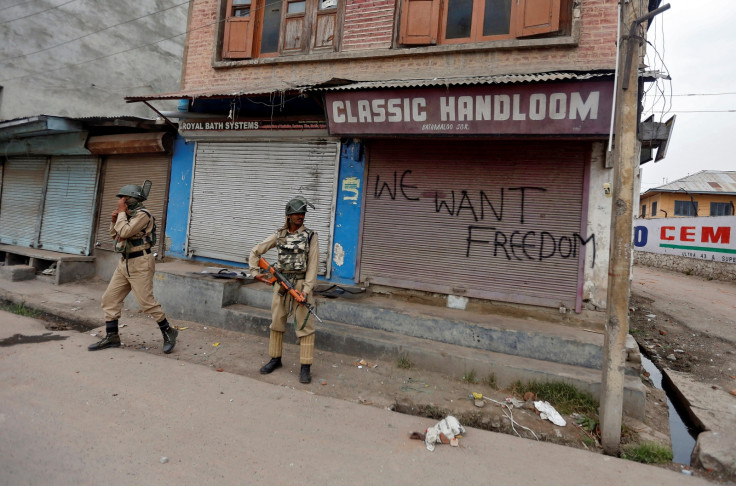India rejects UNHRC request to visit Kashmir to probe alleged human rights violations by forces
The Narendra Modi government is planning to lift the month-long curfew in Kashmir in phases.
All political parties in India unanimously rejected the United Nations Human Rights Commission's (UNHRC) request to visit Kashmir to investigate alleged human rights violations by Indian security forces. The decision was taken during an all-party meeting to discuss the ongoing Kashmir unrest, which has led to a month-long curfew in the valley.
Prime Minister Narendra Modi reportedly asserted during the meeting that Pakistan, which accused India of human rights violations in Kashmir, does not have the right to raise the issue considering its own record of extreme violations against its own countrymen.
Pakistani Prime Minister Nawaz Sharif had written to UN High Commissioner for Human Rights Prince Zeid Ra'ad Al Hussein to "end the persistent and egregious violation of the basic human rights of the Kashmiri people". Following the letter, the UN commission wrote to India asking to pay a visit to the northern state to ascertain the veracity of the allegations, foreign minister Sushma Swaraj told party leaders during the meeting.
However, all party leaders rejected the move saying it could lead to interference in the country's internal matters. Sitaram Yechury, general secretary of the leftist CPM party, suggested that the government instead send a team of its own human rights bodies to access the situation in the state.

On initiating dialogues to resolve the Kashmir unrest, Modi categorically stated he would not engage in talks with separatists nor allow Pakistan to intrude into India's internal affairs. The prime minister also said that Pakistan occupied Kashmir, termed as PoK, "is ours" and he would not entertain any compromise on Kashmir.
The unrest in Kashmir began in July after the killing of Burhan Wani, a key separatist figure in the region whom Pakistan is trying to portray as a martyr. India has warned its neighbour to stop harbouring terrorists and fuelling tensions in the valley.
During the meeting, Modi reiterated the warning, saying: "Pakistan forgets killing its own people by fighter planes. Time has come for Pakistan to explain to the world community about excesses committed in PoK and Balochistan.
"Foreign ministry should take initiatives to develop contact with citizens of PoK settled abroad and apprise them about how their family and friends are treated there," Modi was quoted by the Times of India as saying.
Meanwhile, following the meeting, Indian Home Minister Rajnath Singh and Finance Minister Arun Jaitley said in a joint press conference that the 34-day curfew in Kashmir would be lifted in phases. They added that the security forces have been instructed to exercise maximum restraint while dealing with civilians. The government is trying to bring normalcy to the state, the duo said.
© Copyright IBTimes 2025. All rights reserved.





















